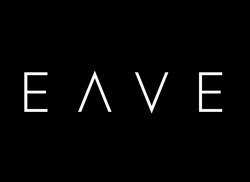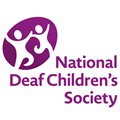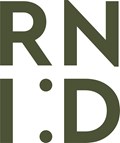Thank you for visiting the EAVE Fundraising page!
At EAVE we are passionate about the importance of being able to hear and so we are supporting and celebrating World Hearing Day. We are raising awareness of World Hearing Day by attempting to break the Guinness World Record for the ‘Tube Challenge’ in support of five brilliant and unique charities that help people with hearing loss. As we wish to support these charities in their work, EAVE will be matching the first £100 donated to each.
Below you will find information on the following:
1. What is the Tube Challenge?
2. What is World Hearing Day?
3. Key facts about Hearing Loss
4. The impact of hearing loss
5. What is the link between World Hearing Day and the Tube Challenge?
6. Why are EAVE doing this?
7. What charities are EAVE supporting and why?
8. How else can you support us?
-----------------------------------
1. What is the Tube Challenge?
The Tube Challenge is the competition for the fastest time to travel to all London Underground stations, tracked as a Guinness World Record since 1960. The goal is to visit all the stations on the system, not necessarily all the lines; participants may connect between stations on foot, or by using other forms of public transport. The current record for fastest completion of the challenge is 15 hours, 45 minutes and 38 seconds that was set on 21 May 2015.
-----------------------------------
2. What is World Hearing Day?
World Hearing Day is held on 3 March each year to raise awareness on how to prevent deafness and hearing loss and promote ear and hearing care across the world. Each year, WHO decides the theme and develops a brochure on the topic based on the best available evidence as well as advocacy materials such as posters, banners, infographics and presentations, among others. These materials are shared with partners in government and civil society around the world as well as WHO colleagues across the Organization. At its headquarters in Geneva, WHO organizes an annual World Hearing Day seminar. In recent years, an increasing number of Member States and other partner agencies have joined World Hearing Day by hosting a range of activities and events in their countries. WHO invites all stakeholders to join this global initiative.
On World Hearing Day 2019, WHO will draw attention to the importance of early identification and intervention for hearing loss. Many people live with unidentified hearing loss, often failing to realize that they are missing out on certain sounds and words. Checking one’s hearing would be the first step towards addressing the issue.
The key messages for World Hearing Day 2019 are:
All people should check their hearing from time to time, especially those who are at a higher risk of hearing loss such as adults above 50 years, those working in noisy places, those listening to music at high volumes for long periods of time and those experiencing ear problems.
Services for early identification and intervention should be made available through the health system.
On 3 March 2019, WHO will launch a free app that allows people to check their hearing. The HearWHO app will be used to:
Raise awareness about the importance of hearing
Encourage people to check their hearing regularly and practice safe listening
Allow health workers to check the hearing status of people in their communities
-----------------------------------
3. Key facts about hearing loss
Around 466 million people worldwide have disabling hearing loss, and 34 million of these are children.
It is estimated that by 2050 over 900 million people will have disabling hearing loss.
Hearing loss may result from genetic causes, complications at birth, certain infectious diseases, chronic ear infections, the use of particular drugs, exposure to excessive noise, and ageing.
60% of childhood hearing loss is due to preventable causes.
1.1 billion young people (aged between 12–35 years) are at risk of hearing loss due to exposure to noise in recreational settings.
Unaddressed hearing loss poses an annual global cost of US $750 billion. Interventions to prevent, identify and address hearing loss are cost-effective and can bring great benefit to individuals.
People with hearing loss benefit from early identification; use of hearing aids, cochlear implants and other assistive devices; captioning and sign language; and other forms of educational and social support.
Over 5% of the world’s population – or 466 million people – has disabling hearing loss (432 million adults and 34 million children). It is estimated that by 2050 over 900 million people – or one in every ten people – will have disabling hearing loss.
Disabling hearing loss refers to hearing loss greater than 40 decibels (dB) in the better hearing ear in adults and a hearing loss greater than 30 dB in the better hearing ear in children. The majority of people with disabling hearing loss live in low- and middle-income countries.
Approximately one third of people over 65 years of age are affected by disabling hearing loss. The prevalence in this age group is greatest in South Asia, Asia Pacific and sub-Saharan Africa.
-----------------------------------
4. The impact of hearing loss
Functional impact: One of the main impacts of hearing loss is on the individual’s ability to communicate with others. Spoken language development is often delayed in children with unaddressed hearing loss.
Unaddressed hearing loss and ear diseases such as otitis media can have a significantly adverse effect on the academic performance of children. They often have increased rates of grade failure and greater need for education assistance. Access to suitable accommodations is important for optimal learning experiences but are not always available.
Social and emotional impact: Exclusion from communication can have a significant impact on everyday life, causing feelings of loneliness, isolation, and frustration, particularly among older people with hearing loss.
Economic impact: WHO estimates that unaddressed hearing loss poses an annual global cost of US$ 750 billion. This includes health sector costs (excluding the cost of hearing devices), costs of educational support, loss of productivity, and societal costs.
In developing countries, children with hearing loss and deafness rarely receive any schooling. Adults with hearing loss also have a much higher unemployment rate. Among those who are employed, a higher percentage of people with hearing loss are in the lower grades of employment compared with the general workforce.
Improving access to education and vocational rehabilitation services, and raising awareness especially among employers about the needs of people with hearing loss, will decrease unemployment rates for people with hearing loss.
-----------------------------------
5. What is the link between World Hearing Day and the Tube Challenge?
Using traditional noise meters the BBC took one week to record some sound levels in zones one and two of the London underground. The loudest recorded Underground journey through central London was between Liverpool Street and Bethnal Green, which peaked at 109 decibels - louder than a helicopter taking off nearby. Any sounds in a workplace at or above an average 85 decibels over an eight hour period, would mean hearing protection would have to be offered.
For people regularlay using the London underground there is evidence to suggest that they are unknowingly causing permanent damage to their hearing. We want to make sure that everyone understands the actual risk of hearing loss they are exposed to by measuring the noise level across the entire London Underground.
-----------------------------------
6. Why are EAVE doing this?
At EAVE our mission is to eliminate the loneliness and isolation that can be caused by hearing loss. We work to educate people working in noise about the associated risks and what they can do to avoid hearing loss. We do this through educational workshops on construction sites and in noisy manufacturing facilities and we give workers our smart ear defenders to use. Our ear defenders are smart because they not only protect hearing while doing noisy work but they also collect easy to understand data on actual personal and environmental noise exposure. This data can then be used to reduce and manage risks related to Noise Induced Hearing Loss
Because our smart ear defenders are able to collect data on the go, we are able to travel the tube network to complete the Tube Challenge while at the same time create the first ever noise map of the entire tube network. Noise measurement have been done in the past in a few areas and have typically taken one or two weeks to complete. We plan to map the whole network in just one day to highlight a new, more efficient way of mapping and managing noise!
As the theme of World Hearing Day is early identification of hearing loss we decided that the London Underground would be a great place to educate people about getting their hearing tested. We will use our technology to map the noise levels on the entire London Underground network on March 3rd while also educating travellers on the underground about the levels of noise they are being exposed to. We'll also be sharing simple tips and tools to help people protect and check their hearing.
-----------------------------------
7. What charities are EAVE supporting and why?
Each of the charities that EAVE has chosen to support work to improve the lives of people with hearing loss in their own unque ways and EAVE is proud to support their work.
Action on Hearing Loss: providing high-quality support and care so people confronting deafness, hearing loss and tinnitus have their needs met. They fund research to find a cure for hearing loss and encourage the take-up of new technology and medical treatments to help manage the condition. Plus, they campaign for equality, so the people they support can make the same life choices as everyone else.
Sound Seekers: delivering practical solutions to support people with hearing loss realise their rights by enabling access to healthcare and education. They do this by partnering with major hospitals and health service providers to improve the prevention, identification and management of hearing loss. Partnering with schools to improve the quality of education for children with hearing loss. Partnering with communities and wider stakeholders to raise awareness on hearing loss and advocate for equal opportunities for people with hearing loss. Sound Seekers improve the lives of thousands of people with hearing loss in some of the poorest communities in the world. They currently have projects in Cameroon, Malawi, Sierra Leone, The Gambia and Zambia.
British Tinnitus Association: an independent charity supporting thousands of people who experience tinnitus and advising medical professionals from across the world. They are the primary source of support and information for people with tinnitus in the UK, facilitating an improved quality of life. They aim to encourage prevention through their educational programme and to seek effective treatment for tinnitus through a medical research programme.
They seek to provide the most appropriate and expert advice and information free of charge via their confidential freephone helpline.
British Society of Audiology: the leading UK organisation for all professionals integrated in the latest science and its application in improving people’s lives with hearing and balance problems. Their work focuses on the fusion of science and compassion for clinical delivery. They aim to advance knowledge, learning, practice and impact in hearing and balance to enhance care.
National Deaf Children Society: focussing on three fundamental areas where they can make the biggest difference.
They'll continue fighting to improve the services received by deaf children and young people.
They’ll champion the development of good language and communication skills.
They’ll shine a spotlight on the importance of being independent and the transition into adulthood.
-----------------------------------
8. How else can you support us?
From everyone at EAVE and on behalf of all of the people and charities you are supporting, we are all so thankful that you have made it this far! As well as every donation that is made meaning so much to so many, no matter how large or small the amount, you can also help us by sharing this story with your network.
Feel free to contact us with any thoughts or feedback you have too. We're listening!









